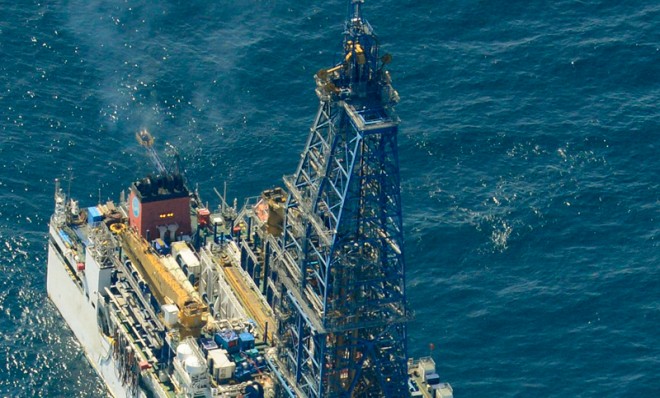How Japan's 'flammable ice' breakthrough could revolutionize the energy industry
The country may have found the successor to fracking


A free daily email with the biggest news stories of the day – and the best features from TheWeek.com
You are now subscribed
Your newsletter sign-up was successful
On Tuesday, Japan became the first country to ever successfully extract natural gas from underwater deposits of methane hydrate, a frozen gas sometimes referred to as "flammable ice." The breakthrough could be a boon to the energy-poor nation, which imports almost all of its energy. And if the technology proves commercially viable, it could benefit other countries — including Canada, the U.S., Norway, and China — that are also seeking to exploit methane hydrate deposits.
Japan has reportedly spent hundreds of millions of dollars in pursuit of flammable ice, a Holy Grail that could satisfy the country's future energy demands as Japan weans itself off nuclear power in the aftermath of the leak at the Fukushima Daichii plant. Japanese officials are virtually giddy at the prospect. "Japan could finally have an energy source to call its own," proclaimed Takami Kawamoto, a spokesperson for the Japan Oil, Gas, & Metal National Corp. (Jogmec), the government-run company that is leading the effort.
According to The New York Times, "Methane hydrate is a sherbet-like substance that can form when methane gas is trapped in ice below the seabed or underground." Jogmec says there are at least 1.1 trillion cubic meters of the stuff in the trough where it is currently drilling, just off the Pacific Coast. If Japan can perfect its extraction technique, the area would provide the country with enough natural gas to last 11 years. Japan's waters reportedly contain a total of 7 trillion cubic meters of flammable ice, which would supply the country with natural gas for many, many decades to come.
The Week
Escape your echo chamber. Get the facts behind the news, plus analysis from multiple perspectives.

Sign up for The Week's Free Newsletters
From our morning news briefing to a weekly Good News Newsletter, get the best of The Week delivered directly to your inbox.
From our morning news briefing to a weekly Good News Newsletter, get the best of The Week delivered directly to your inbox.
How does the drilling process work exactly? "Japan used depressurization to turn methane hydrate to methane gas," says Reuters, "a process thought by the government to be more effective than using the hot water circulation method the country had tested successfully in 2002."
The technology, however, is still in its infant stage. At the moment, it's far too expensive to be sustainable, though Japan hopes to have a commercially viable model in place by 2019. Furthermore, flammable ice remains something of a mystery, which could result in technical glitches and setbacks in the future. "We are studying many things that are not yet known about methane hydrate," according to Kawamoto.
Still, Japanese officials point to the U.S.'s recent natural gas boom as evidence that technologically complex drilling processes can result in an energy bonanza. The U.S.'s production of natural gas has skyrocketed due to hydraulic fracturing — or fracking — of shale rock, an intensive process that has become widespread in recent years.
Fracking remains a controversial technique, with environmentalists claiming that it could do significant damage to the environment. So far, scientists know little about the impact flammable gas extraction could have on the environment.
A free daily email with the biggest news stories of the day – and the best features from TheWeek.com
Ryu Spaeth is deputy editor at TheWeek.com. Follow him on Twitter.
-
 What is the endgame in the DHS shutdown?
What is the endgame in the DHS shutdown?Today’s Big Question Democrats want to rein in ICE’s immigration crackdown
-
 ‘Poor time management isn’t just an inconvenience’
‘Poor time management isn’t just an inconvenience’Instant Opinion Opinion, comment and editorials of the day
-
 Bad Bunny’s Super Bowl: A win for unity
Bad Bunny’s Super Bowl: A win for unityFeature The global superstar's halftime show was a celebration for everyone to enjoy